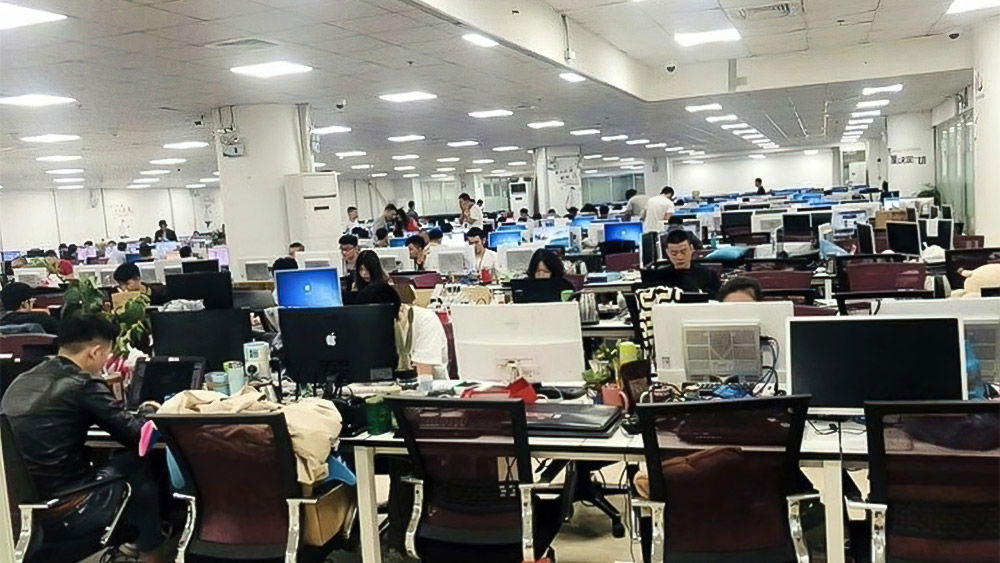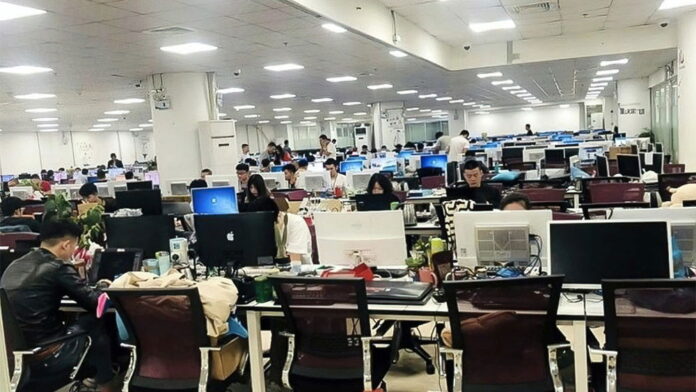
A total of 187 Chinese nationals involved in online gambling in the Philippines were deported to China last week, authorities confirmed. The two countries put tensions arising from the South China Sea dispute aside to work together on the gambling crackdown, prioritizing bilateral cooperation.
The deportees, detained at a Presidential Anti-Organized Crime Commission (PAOCC) detention facility, some of whom have been linked to Philippine Offshore Gaming Operators (POGOs), were escorted to the Ninoy Aquino International Airport (NAIA) Terminal 1 for a noon flight bound for Shanghai, as per ABS-CBN.
The Philippine authorities’ action was touted as “a milestone for bilateral cooperation at a time of heightened geopolitical tensions between the two countries” by the South China Morning Post.
Chinese state news agency Xinhua also credited China-Philippine cooperation for the deportations, which follow the executive order issued by President Marcos Jr in banning POGOs and mandating an end to their operations by December 31st.
As the deadline approached, tens of thousands of POGO workers – many of whom are Chinese citizens – were told earlier in the year to cancel their visas or have them revoked.
As of early November, 21,757 foreign nationals associated with POGOs had voluntarily switched their work visas to temporary visitor visas. Of those, 10,821 have already left the Philippines, the Bureau of Immigration in Manila said on its website. The bureau said it had issued cancellation orders a month earlier to 12,106 foreign nationals who had not changed their status.
On September 6th, law enforcement authorities from both countries repatriated nearly 100 Chinese citizens engaged in offshore gambling, the Chinese embassy in Manila said on its website.
“I think such deportations are welcomed by China because the Chinese government policy overseas has been opposed to underground operations including digital, cyber-based casinos,” said Victor Gao, Vice-President of the Beijing-based think tank Centre for China and Globalization.
Xinhua, citing the Chinese embassy in Manila, said the latest round of deportations marks “another important step” for joint law enforcement. Cooperation on shuttering POGOs, including a formal compliment from Beijing to Manila in July, runs counter to the friction between the countries over a maritime sovereignty dispute in the South China Sea, including joint Philippine-US naval patrols.
Closing POGOs is in the interests of people from both countries, the Chinese embassy said earlier this year. Chinese law bans offshore gambling and Beijing hopes to stop its citizens who get involved.
From Manila’s perspective, Filipinos who are recruited by these outfits may commit other crimes downstream of gaming. Offshore gambling “siphons money” out of China, Gao said. POGOs have also been blamed for fostering financial scams, human trafficking, and kidnappings.
POGOs employed more than 300,000 Chinese workers who were involved in the industry at its height, but official estimates put the number of those legally employed by the sector near half that number earlier this year.
Original article: https://www.yogonet.com/international/news/2024/12/10/88119-philippines-deports-187-pogo-workers-to-china-ahead-of-offshore-gaming-operations-ban-deadline














